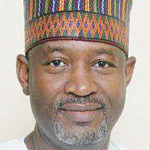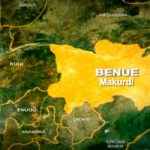Fresh Evidence Suggest Govt May Revisit Malabu Oil Deal
 In December, the public prosecutor of Milan (Italy) laid some fairly explosive evidence before the UK’s Southwark Crown Court in connection with an ongoing Nigerian corruption investigation. If the evidence can be substantiated, it may have widespread political and international ramifications for those involved in a remarkably long running and murky saga.
In December, the public prosecutor of Milan (Italy) laid some fairly explosive evidence before the UK’s Southwark Crown Court in connection with an ongoing Nigerian corruption investigation. If the evidence can be substantiated, it may have widespread political and international ramifications for those involved in a remarkably long running and murky saga.
In the Crown Court, Mr Justice Edis was asked to discharge a restraint order, obtained earlier by the director of public prosecutions pursuant to a request for mutual legal assistance from the public prosecutor of Milan (Italy). The order restrained distribution of a payment made into a civil court of $85 million.
The monies represented the balance from $200 million that the UK’s commercial court had ordered Malabu Ltd, a Nigerian registered company, to pay into court as a condition of it defending a claim for unpaid commission brought by Energy Venture Partners (EVP), a BVI company controlled by a Mr Obi.
Mr Obi claimed he and EVP were due the commission following Malabu’s disposal of an offshore oilfield license, OPL 245, which it surrendered in 2011 to the government of Nigeria in exchange for payment of $1,092,040,000. The government simultaneously granted a new license to a consortium, formed between subsidiaries of Eni and Shell, which provided the $1 billion in surrender monies and an additional $207 million.
When Malabu refused to pay Mr Obi and EVP a commission on the transaction, they sued, and the UK commercial court judge awarded EVP a fee of $110.5 million. The award was 8.5 percent of the $1.2 billion in total payments to Malaubu for OPL 245, based on a commission agreement between Malabu and EVP, and a finding that without Mr Obi’s involvement and his connections, Malabu would have had difficulty putting the deal together on its own.
At the Crown Court hearing on Malabu’s application to discharge the restraining order, the public prosecutor of Milan produced evidence obtained from U.S. authorities suggesting that out of the proceeds of $1.2 billion, $10 million had been paid to Bayo Ojo San, a former Nigerian attorney general, and a massive $523 million had been paid to a Mr Aliyu, who was alleged to be associated with important Nigerian politicians.
The public prosecutor of Milan also produced incriminating wiretap evidence which the judge summarized as follows:
It suggests that the [Nigeria] president was personally involved in whatever was being discussed and that he wanted everything signed “by tomorrow”. In the second [recording] Bisignani is talking to an unknown man and telling him “Mr Fortunato and the lady have said they want this to do this today or the day after tomorrow. “The lady” is said to be the Nigerian oil minister. The significance of this is that it suggests that the president was involved”. If the suspicion that Aliyu is a close associate of his is made good then the fact that $523 million of the proceeds of the April 2011 sale went to Aliyu may have direct relevance to the question of whether those proceeds went in part or were promised in part to Nigerian public officials (para 18).
Edis J, who emphasized that he was not making any findings of fact based on the evidence, considered the case to be remarkable for the lack of assistance provided by any of the parties (excepting the legal representatives). He pointed out that the public prosecutor of Milan had provided no indication about how the investigation was proceeding or when the next stage might be reached. The judge pointed out that because Malabu had not sought to file any evidence, the public prosecutor of Milan’s inferences that the distribution of $523 million had been corrupt remained uncontradicted.
The judge upheld the restraint order. He found there were reasonable grounds to believe that some or all of the $85 million still held by the court would go to persons who are or were Nigerian public officials, under an agreement reached while they were in office.
The judge said he could not assume that the administration in power in Nigeria from 2011 until 2015 had “rigorously defended the public interest of the people of Nigeria in all respects” despite assurances, given in 2011, that the transaction was legitimate. The judge noted that those assurances must have been given without knowledge of how the proceeds had actually been distributed.
At a time when Nigeria is reportedly seeking a World Bank loan of $3.5 billion to plug a budget deficit, there’s every incentive for the new government to pursue an investigation into the Malabu transaction. According to evidence submitted by an NGO to the Crown Court, the UK authorities considered a successful prosecution unlikely in the light of the Nigeria government’s assurances that the 2011 surrender and grant of the OPL 245 license was legitimate (a UK investigator described these assurances as having “sprinkled holy water” on the transaction).
Whether the U.S.-sourced evidence on the distribution of $528 million of the proceeds and the wiretap evidence of alleged political involvement has desanctified it remains to be seen.
Courtesy: FCPA Blog








